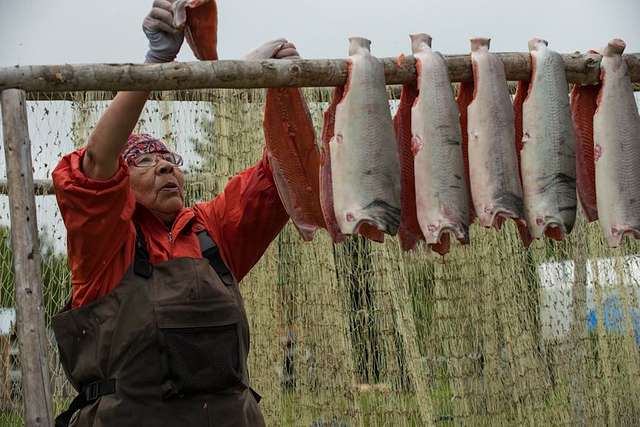
- Details
- By Native News Online Staff
The Alaska Federation of Natives (AFN) is pleased to announce a major legal victory as the Ninth Circuit Court of Appeals has upheld Judge Gleason’s ruling in the Kuskokwim case, affirming that the Katie John decisions remain binding precedent. The court’s opinion, released this morning, confirms that when Congress enacted Title VIII of the Alaska National Interest Lands Conservation Act (ANILCA), it intended to create a rural subsistence fishing priority in navigable waters on federal lands—a principle established decades ago in the Katie John cases.
The State of Alaska had argued that the subsistence priority should only apply to non-navigable waters, which would have significantly weakened protections for rural subsistence fishing, particularly for salmon.
In its ruling, the court found that the definition of “public lands” under Title I and Title VIII of ANILCA can differ, and that Congress had ratified the broader interpretation that includes navigable waters historically used for salmon fishing—waters that are essential for the subsistence practices of Alaska Native communities.
“This victory preserving the rural subsistence priority is a testament to our collective resilience and determination to protect our rights and culture for future generations,” said Ana Hoffman, AFN Co-Chair.
The opinion strongly reinforces the central role of salmon in subsistence life and affirms legal access to traditional fishing grounds.
“I want to thank AFN’s leaders and members for intervening in this case,” added Joe Nelson, AFN Co-Chair. “This ‘win’ is one of many more to come as we continue the endless work of protecting our way of life. The dual management compromise will continue testing us – until we fix it.”
AFN applauds the thorough work of the court and legal teams and emphasizes that this ruling is a critical step in safeguarding Alaska Natives’ access to essential subsistence resources. While the State of Alaska may still seek a rehearing or appeal to the U.S. Supreme Court, AFN remains confident that the decision clearly supports Native rights and the preservation of cultural traditions.
“This ruling reaffirms the rural subsistence priority for fishing, as Congress intended, and underscores the importance of salmon to our culture and sustenance,” said Ben Mallott, AFN President. “We will continue to advocate for policies that protect our way of life and uphold our legal rights.”
AFN also extends its gratitude to the Kuskokwim River Intertribal Fish Commission, Association of Village Council Presidents, and Ahtna, Inc. for their steadfast commitment and collaboration in defending these vital rights.
More Stories Like This
50 Years of Self-Determination: How a Landmark Act Empowered Tribal Sovereignty and Transformed Federal-Tribal RelationsOneida Nation Responds to Discovery Its Subsidiary Was Awarded $6 Million ICE Contracts
SRMT Child Support Enforcement Unit Delivers Holiday Food Boxes to Families
The Shinnecock Nation Fights State of New York Over Signs and Sovereignty
Navajo Nation Council Members Attend 2025 Diné Action Plan Winter Gathering
Help us defend tribal sovereignty.
At Native News Online, our mission is rooted in telling the stories that strengthen sovereignty and uplift Indigenous voices — not just at year’s end, but every single day.
Because of your generosity last year, we were able to keep our reporters on the ground in tribal communities, at national gatherings and in the halls of Congress — covering the issues that matter most to Indian Country: sovereignty, culture, education, health and economic opportunity.
That support sustained us through a tough year in 2025. Now, as we look to the year ahead, we need your help right now to ensure warrior journalism remains strong — reporting that defends tribal sovereignty, amplifies Native truth, and holds power accountable.
 The stakes couldn't be higher. Your support keeps Native voices heard, Native stories told and Native sovereignty defended.
The stakes couldn't be higher. Your support keeps Native voices heard, Native stories told and Native sovereignty defended.
Stand with Warrior Journalism today.
Levi Rickert (Potawatomi), Editor & Publisher


